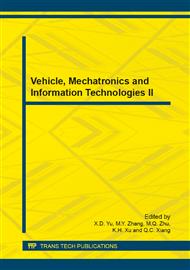p.4156
p.4161
p.4165
p.4169
p.4175
p.4180
p.4185
p.4190
p.4194
Research on the Significance, Measures and Steps of Constructing Knowledge Base of Regional Library in Poyang Lake
Abstract:
In view of the theory and application of knowledge base, this paper elaborates the construction of knowledge base to integrate the resources of Poyang Lake region library and promote the cultural construction and economic development of the Poyang Lake region. Building the Poyang Lake region knowledge base can make leaders at all levels, foreign experts, readers quickly and easily understand the history and current situation of the various resources of the Poyang lake region, it externally plays an important role in propagandizing the cultural resources and attracting investment and developing tourism resources and promoting economic development. Finally, the paper emphasizes on discussing the selection strategies and service pattern of Poyang lake regional library knowledge base.
Info:
Periodical:
Pages:
4175-4179
Citation:
Online since:
March 2014
Authors:
Keywords:
Price:
Сopyright:
© 2014 Trans Tech Publications Ltd. All Rights Reserved
Share:
Citation:


